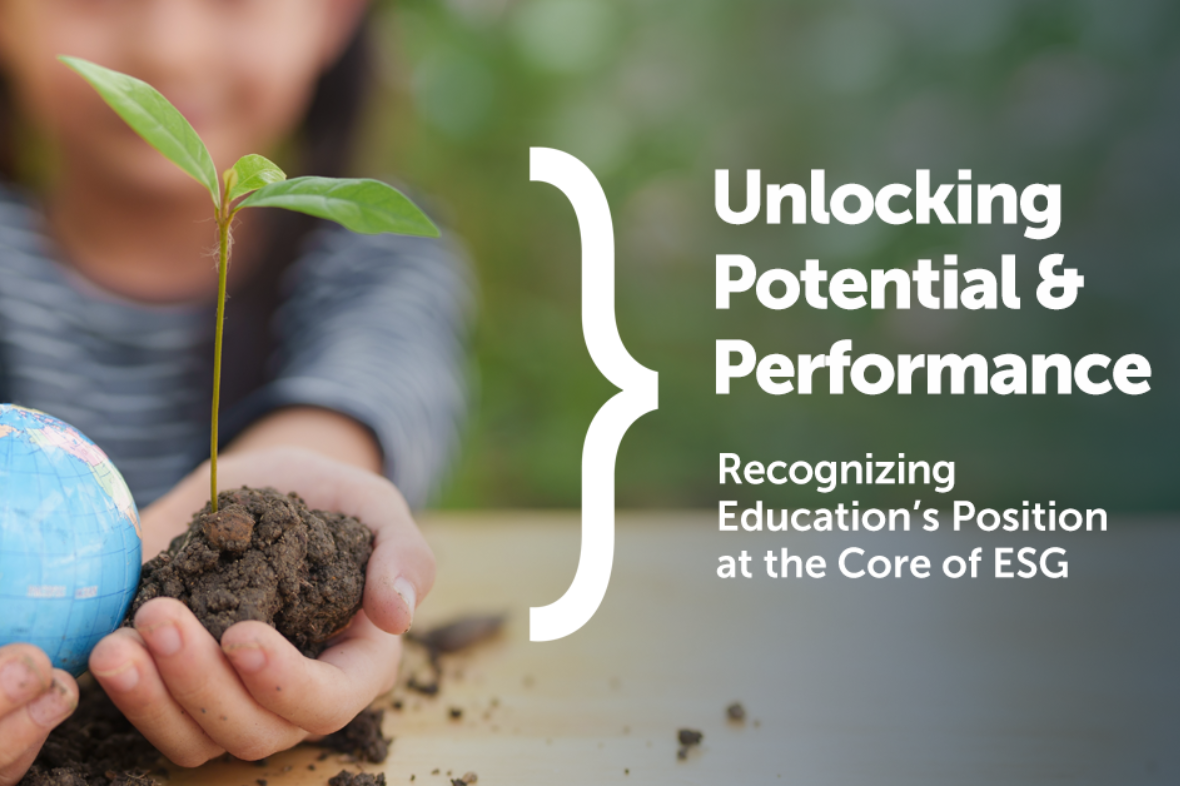

ESG and Education Climate Change and Environmental Impact
Climate Change and Environmental Impact
As companies work to reduce their greenhouse gas emissions (GHG) and mitigate their environmental impact, they also need to assess how education can help them achieve those objectives.
Corporate support of educational activities can significantly improve environmental performance and overall ESG outlook. There is ample evidence that simply educating girls can have a direct impact on climate change, with potential education-related emissions reductions reaching 85.4 gigatons globally by 2050. Moreover, there is a strong correlation between education and a person’s environmental concern, which can be translated into active changes to adapt to climate change.
A study of nearly 30 countries found that 37% of people with secondary education and 46% of those with tertiary education were concerned for the environment, compared with 25% of those who did not start secondary education.
Beyond the clear benefits associated with improved emissions reduction, companies can also reap benefits associated with investments in environmental education. Providing environmental education to children in communities where business has an operational footprint has a ripple effect, with knowledge transferred to their families, inspiring action, and reducing vulnerability. One study found that intergenerational learning has proven to be an influential pathway for parental adoption of environmental concerns, ultimately changing harmful behavior. Therefore, educating the children of a company’s employees can contribute to minimizing the company’s environmental impact. Further direct efforts to educate employees can also help promote greater success when looking to mitigate environmental impact and address climate concerns.
For example, in April 2021, Deloitte launched a Climate Learning Program to inform and inspire its 330,000 employees to learn about the impact of climate change and empower them to address climate change by making responsible choices at home and work.
By investing in both climate-specific and general environmental education, companies can have a real, lasting impact on efforts to reduce GHG and climate risks as well as on their broader environmental footprint. Effective environmental education that spans generations can increase understanding and awareness of key issues, like climate, and inform more effective support for critical programs and initiatives. Finally, these educational investments can inform the ways that companies discuss and disclose efforts to address climate change as part of their broader ESG programs.
Other materiality issues linked to education
Explore ESG and Education

